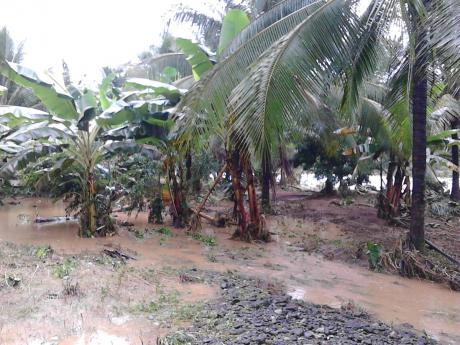Women, youth warned that climate change will be theirs to handle
The women and young people who will benefit from the training under the pilot project ‘Strengthening the Adaptive Capacity of Young Farmers and Fisherfolk in Jamaica’ have been challenged to become agents of change for the betterment of Jamaica, as the world enters an unprecedented phase of climate change.
Some 600 young male and female farmers and fishers in select communities across five parishes – Clarendon, Manchester, St Elizabeth, Westmoreland and St Thomas – will be trained in climate-smart agriculture, business management and financial training, and provided with business inputs to start and/or strengthen their farming, fisheries and agro-processing enterprises. The enterprise development component will be underpinned with six months of coaching and hand-holding to help them make their businesses sustainable.
The pilot project is a key activity in the comprehensive EnGenDER project being implemented in Jamaica, Antigua and Barbuda, Belize, Dominica, Grenada, Guyana, Saint Lucia, St Vincent and the Grenadines and Suriname. It aims to improve climate resilience for women, girls and other vulnerable populations as well as future generations in the Caribbean.
And it was to this target audience that UNDP Resident Representative in Jamaica Denise Antonio directed her charge, reminding them of the pivotal role they would have to undertake in the meaningful transformation of their communities, countries and the region.
“Climate change is on course to affect your generation in unprecedented ways. This is not to scare you, but to challenge you to rise to the occasion. Adaptation and mitigation practices work. I charge you to absorb the resources of this project, apply and add value to what you have learned.
“Innovate new methods of securing your outputs and energising your business ideas as overcomers of climate change. Then come back and teach us what you have learned. Today and tomorrow’s generation of leaders await your stories of triumph to inspire us to new heights in resilience to crisis. I know you can do it,” she urged via a recorded message. The occasion was last Thursday’s launch at the Denbigh 4-H Training and Production Centre in May Pen, Clarendon.
GENDER IMBALANCE
The project will also seek to address in a substantive way, the gender imbalance in the farming and fisheries sectors, which in Jamaica have traditionally been male- dominated. This is reflected in the data showing that women account for only 31 per cent of farmers, while in the fisheries sector, they make up a mere 5.9 per cent of the stakeholders. For inland fisheries (pond fishing), the contribution of women is negligible, with just over one per cent involved.
The research further shows that a major reason for the discrepancy in numbers is because women and young people face far greater challenges in accessing resources and aid whenever they suffer setbacks, such as disruptions caused by severe weather conditions and climate change. These lingering inequalities continue to account for vast, unrealised potentials in livelihoods and the socio-economic standing of women and youth, especially in rural communities.
Now, under the six-month pilot project these women and youngsters will be empowered to make meaningful contributions in farming and fisheries after their participation in the pilot project, the main objectives of which are:
• To advance gender-responsiveness implementation of national adaptation plans and nationally appropriate mitigation actions at the sector level, according to national priorities, focusing on sectors that have the greatest beneficial impact for women and girls.
• To support representation of the needs and perspectives of the most vulnerable populations in cross-sectoral, inclusive governance and national climate change planning.
• Build government capacity for the gender-responsive, inter-sectoral access to climate finance through innovative solutions.
• Build on the work of other partners, working at the national level to assist countries to develop/strengthen gender responsiveness and inclusive national recovery mechanisms and plans.
The project will be implemented by the UNDP, in partnership with Jamaica 4-H Foundation, and is funded by Global Affairs Canada and the Foreign Commonwealth and Development Office, United Kingdom, at a cost of US$792,000.

